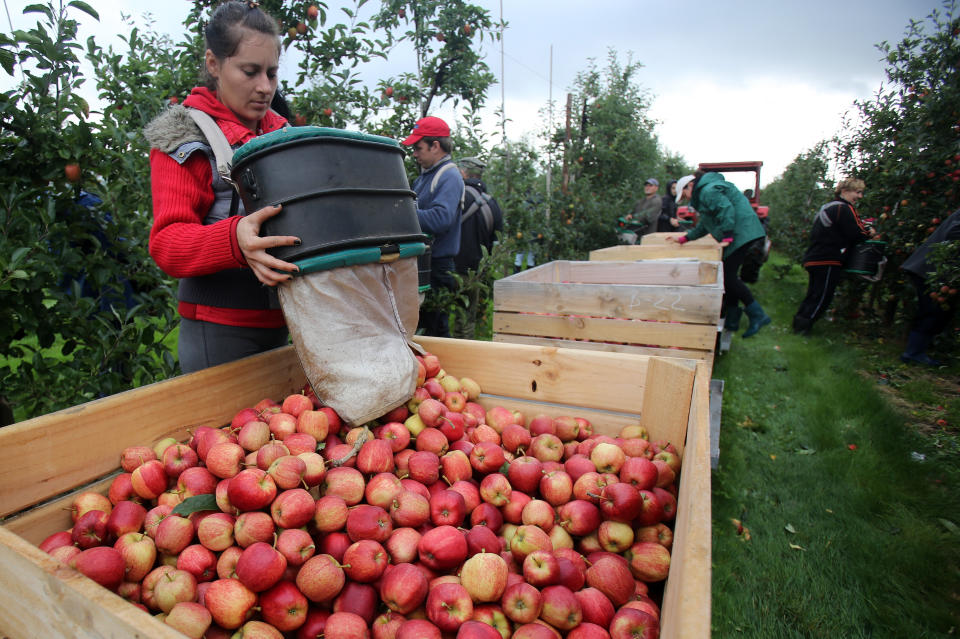EU heads agree to tighten rules on cheap migrant workers

Tighter rules regarding how much migrant labour workers earn in European Union states are to be introduced.
It’s a victory for France president Emmanuel Macron who had been pressing for reforms of the EU’s “posted workers” rules whereby workers from lower-wage countries are often employed in richer nations at rates that undercut domestic wages.
Cheap migrant labour apparently undermining the wages of UK workers was one of the key messages that came out during the Brexit referendum campaign.
A “posted worker” is an employee who is sent by his employer to carry out a service in another EU member state on a temporary basis.
On Wednesday, member states agreed to limit employee postings to 12 months rather than 24 months, with a possible six-month extension.
Employers will now also have to adhere to labour standards of the host country – including the provision of benefits such as holidays and health insurance.

Member states will now work to avoid “social dumping” where foreign service providers can undercut local service providers because their labour standards are lower.
MORE: No mass exodus of finance jobs from London, says Brexit minister
Critics have argued poorer EU nations were sending labour to richer ones knowing they could be paid less than the standard rate than workers from the host nations.
Macron said this was a “betrayal of the European spirit” and a played into the hands of Eurosceptics.
“With today’s agreement, the EU delivers on the important principle of equal pay for equal work, ensuring that all workers are treated fairly across the Union,” said Biser Petkov, Bulgaria’s labour minister and president of the European Council.
“Local or posted workers doing the same job at the same place will have the same working and wage conditions.”
MORE: Bonfire of rules after Brexit ‘will do more harm than good’, warns CBI
The final adoption of the directive will come at a later stage, once the legislation has been voted in the Parliament.
Figures from the Office for National Statistics show an estimated 2.38 million EU migrants began work in the UK between July and September in 2017 – a rise of 112,000 compared with 2016 and the highest number since records began 20 years ago.
The number of non-EU workers has fallen, however.
Many sectors – particularly the service industry, agriculture, hospitality, tourism and health – have expressed concerns about the fallout from Brexit on the number of migrant workers available.

 Yahoo Finance
Yahoo Finance 